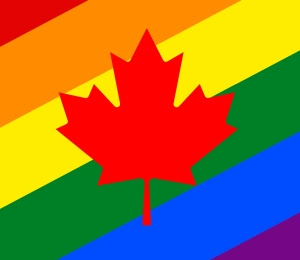The following post covers basic questions about nonfiction writing in Canada, which was originally part of my notes for a panel discussion that I was a part of at Fan Expo 2013. Feel free to leave any questions or comments about this document.
CANADIAN WRITING ORGANIZATIONS
Writers Guild of Canada: http://www.wgc.ca/index.html
- They represent more than 2,000 professional English-language screenwriters across Canada
- DUES $ 150/year (plus initiation fee of $350)
- They also offer an intellectual property registration service: http://www.wgc.ca/script_reg/. Just create an account and upload! Costs about $40 for non-WGC members
- For my book, Un-Dead TV, I submitted a basic outline; this included the premise of the book, a synopsis, as well as specific details about the content that would identify it as unique. I also included a detailed index of the information I had collected to that point. Was approximately 16 pages (I did this since I was at the point of starting to create a web presence for the book)
- A year after the original registration, I started looking for a publisher--so I also registered a copy of my general publisher proposal
The Writers’ Union of Canada: http://www.writersunion.ca
- National organization of professional writers of books, about 1,900 members strong
- DUES $ 200/year (new members, $100 for first year)
- Founded 40 years ago to work with governments, publishers, booksellers, and readers to improve the conditions of Canadian writers.
- To qualify for membership in The Writers' Union of Canada, you must have had a trade book published by a commercial or university press, or have a contract in hand
- They are very strict with their rules; I was rejected for membership, because they deemed my book was "encyclopedic in nature rather than a trade book published by a commercial press." I actually got the feeling that they were quite biased against small press publishers, so no big loss as far as I was concerned
Professional Writers Association of Canada: http://www.pwac.ca/
- Includes approx. 600 freelance writers across Canada with many chapters across the country, including Toronto, and most host local informational seminars/panels several times a year (accessible to members and non-members alike)
- DUES $240/year (+ some chapters have an additional fee of $5-25)
I've also attended several panel discussions over the past couple of years. Here are a few highlights:
Agents: when you first look for an agent, send a clear and concise query letter PLUS a proposal and sample chapter; usually one just sends a query letter, but it's not a faux pas to include the other material (when I spoke to an agent, she told me to wait a year after my first book is published before contact; this way I’ll have a years worth of sales states, info on web presence)
Long-form Fiction: very few Canadian magazines accept long form fiction anymore; exceptions include The Walrus and Toronto Life, and most submissions average out at 5000 words.
Self-publishing: this is the way to go for some, but remember, HIRE AN EDITOR. The problem with the majority of self-published work is, quite frankly, crappy writing! (In my opinion.)
TRADITIONAL PUBLISHING
When negotiating with a publisher, it's best hold on to your e-book rights if at all possible. Regarding submissions, each publisher has their own guidelines, which are usually shown on their website. Some will accept a complete manuscript, but if you’re still working on it, you should send a query letter and book proposal. Some request that you include a note if you’re sending the proposal out to other publishers.
In general, they require a query letter that includes:
- A descriptions of the book
- how far along you are with writing it
- an estimate of the final length
- an explanation as why it is unique
Included will be a full book proposal, the content of which varies from publisher to publisher (many examples are online). But generally, include:
- an overall description
- a table of contents
- estimated word count and completion date
- a preface or introduction
- comments on how your book differs from what’s already out there
- examples of what you might include as photographs or illustrations
- a sample of the manuscript (generally 1-2 chapters, and pages that represent any special content)
Double-space everything, make it clean and simple, and never add anything to “spice” up your proposal, such as coloured paper, or a fruit basket. Some accept everything via email, but if you’re snail-mailing it, include a SASE if you want the material returned to you.
NONFICTION PUBLISHERS
Here's a list of the major houses publishing nonfiction:
McFarland: A leading independent U.S. publisher of academic and general interest nonfiction books; welcome proposals for nonfiction manuscripts on a wide range of subjects, not limited to the following: popular culture and performing arts. http://www.mcfarlandbooks.com/
Arsenal Pulp Press: Vancouver-based publisher covering literary fiction and nonfiction; cultural and gender studies; LGBT and multicultural literature; cookbooks, including vegan; alternative crafts; visual arts; and books in translation. They are interested in literature that "traverses uncharted territories," publishing books that challenge and stimulate and ask probing questions about the world around us. http://www.arsenalpulp.com
Dundurn Press: Started as a small publisher of Canadian non-fiction, focusing on military history, current affairs, politics, and biography, and soon expanded into art books. http://www.dundurn.com/
ECW Press: Based in Toronto, one of the most diversified independent publishers in North America, been around since the early 1970s. Mix of commercial and literary works. http://www.ecwpress.com/








0 comments:
Post a Comment